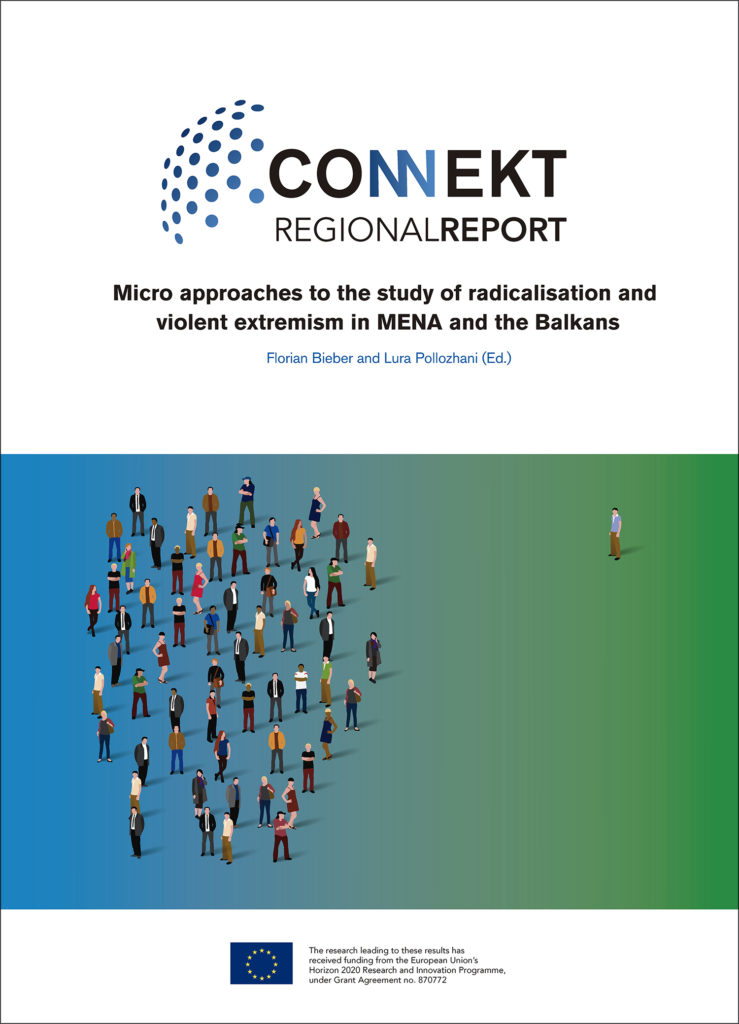This paper examines the impact of predefined drivers of radicalisation and violent extremism (VE) (religion, economic deprivation, territorial inequalities, digital socialisation, political issues, education, leisure and cultural opportunities, and transnational dynamics) at a micro level, contributing to VE in the Balkans region. The study is conducted in Bosnia and Herzegovina (BiH), Bulgaria, Kosovo and North Macedonia. The population sizes of these countries discussed in this report exhibit considerable variation. Kosovo has the smallest population, with 1,739,825 residents, while Bulgaria is the most populous, boasting 7,364,570 residents. BiH and North Macedonia fall in between, with populations of 3,531,159 and 2,022,547, respectively. Furthermore, the population in all of them is ethnically and religiously diverse (Peci and Demjaha, 2021).
Against this backdrop, this study presents comparative quantitative findings based on nonrepresentative national surveys conducted from March to April 2023, involving 1,636 young individuals aged 15 to 30 in Bosnia and Herzegovina (432), Bulgaria (400), Kosovo (404), and North Macedonia (400). The report wraps up by offering a series of policy recommendations with a preventive perspective that places emphasis on youth and gender considerations.
The findings presented in this report offer policy and analytical insights that can benefit policymakers and various stakeholders involved in preventing violent extremism (PVE), as well as academics. One distinctive aspect of this analysis is its exploration of the daily experiences of young individuals in relation to the drivers of VE. The insights derived from the quantitative data provide a better understanding of how youth in the Balkans are affected by VE drivers, thus contributing to a clearer understandingof PVE priorities concerning individual experiences. Furthermore, utilising data-driven analysis of the aforementioned drivers, this report sets the groundwork for more efficient and customised strategies in combating VE.
The results expounded upon in this report are under the influence of two specific limitations. Firstly, the utilisation of a non-representative research sample renders all findings suggestive rather than broadly generalisable. Their primary utility resides in the policy insights they offer for PVE. Secondly, the data collected does not provide a comprehensive elaboration of the micro-level impact of the predetermined drivers mentioned above. Thus, the qualitative data remains a subject for further exploration by researchers. It is imperative to undertake additional studies in a systematic manner to acquire a more comprehensive understandingof the results.


